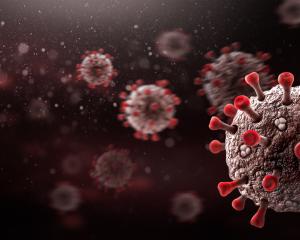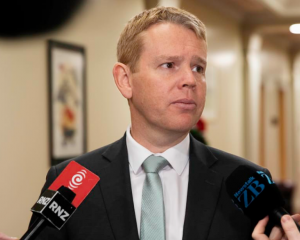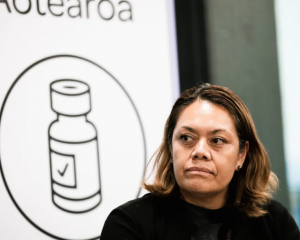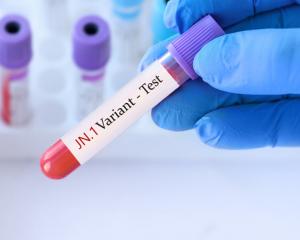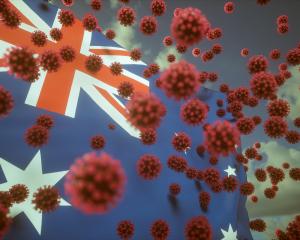Parts of Waikato will remain in alert level 3 for the next six days, after the region recorded eight new cases of Covid-19 earlier today.
Based on the latest public health information, Covid-19 Response Minister Chris Hipkins said maintaining level 3 in those parts of the Waikato continues to be the most prudent course of action.
The alert level will continue till 11.59pm on Wednesday October 27 and will be reviewed on that day.
It includes Waitomo District, including Te Kuiti, Waipa District, Ōtorohanga District, Raglan, Te Kauwhata, Huntly, Ngāruawāhia, Hamilton City and some surrounding areas.
Today the number of new community cases of Covid-19 reached triple figures for the first time, with 102 cases reported.
Ninety-four of the cases are in Auckland - the centre of the current Delta outbreak - and eight in Waikato. Thirty of the cases are household contacts.
Forty-six people are in hospital - the highest number in the outbreak to date - and one case is in a Waikato hospital. Seven are in ICU or a high dependency unit.
Deputy Prime Minister Grant Robertson said the ups and downs of daily cases can be an "emotional rollercoaster" and the Government does expect cases to continue to rise.
He urged Aucklanders living in alert level 3 restrictions to stick to the rules over the holiday Labour Weekend.
Director-General of Health Dr Ashley Bloomfield told media this afternoon that, of the new cases, 40 have yet to be linked with investigations continuing to help determine their connection to the outbreak. There are now 199 unlinked cases in the past two weeks.
There are also two new cases to report at the border today.
There are now 2260 cases in the Delta outbreak and 4956 since the pandemic began in March 2020.
Dr Bloomfield said the sharp rise in case numbers is a reminder of the infectiousness of the virus - particularly the Delta variant - and the importance of vaccination as the best means of protection.
"It's becoming increasingly clear, as has been the case right through the outbreak that Covid is internationally a disease amongst the unvaccinated - and this is certainly the pattern here.
"The harms for Covid-19 fall much more on those who are unimmunised", he said.
"UK data shows that of 40,000 patients hospitalised in the six months to the middle of this year in the UK, 84 percent of those people hospitalised hadn't been vaccinated and only 3 percent of cases in hospital were fully vaccinated."
He said the data for New Zealand was similar.
Bloomfield said case numbers are doubling every 10 to 12 days, and the key point was how many of those people who caught Covid-19 were vaccinated.
Only 1.7% of people hospitalised in the Delta outbreak have been vaccinated, he said.
Te Awamutu cases
The eight cases in Waikato are centred around Te Awamutu.
One of these cases travelled to Hawke's Bay last Friday, but returned to Te Awamutu before testing positive. Bloomfield today confirmed there were no known positive cases in Hawke's Bay.
People in the Te Awamutu are being urged to get tested if they or anyone in their household has symptoms, or if they have travelled out of Te Awamutu over the past week for work or other activities.
Bloomfield asked for more people to come forward for testing in Waikato, as only 3000 swabs were taken yesterday.
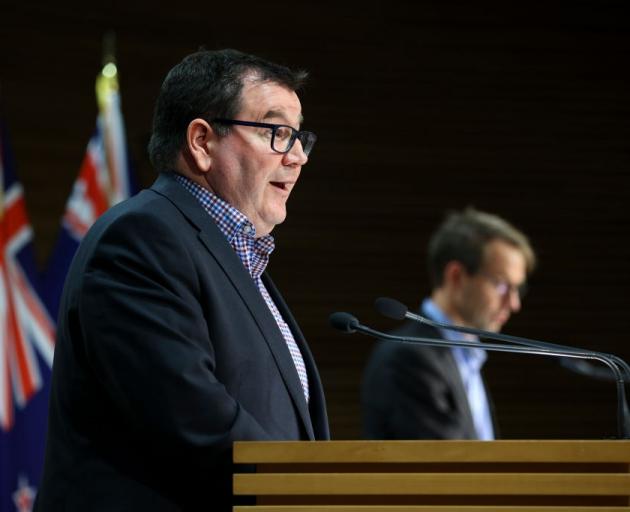
Assurance hospitals won't get overwhelmed
Bloomfield updated guidance for allied health professionals working in settings outside district health boards and hospitals clarifies that they can provide services under alert level 3.
This will enable about 2000 people in Auckland alone such as psychotherapists, osteopaths and chiropractors to provide services to those who need it.
They will continue to provide tele-health services where that is most appropriate, he said.
This week is infection prevention control week, and Bloomfield acknowledged the "huge dedication and effort" of IPC professionals working on the front line.
Robertson said officials have been planning for the health system to cope with rising cases, such as sharing workforce around the country. Today seven people are in ICU and those rates are keeping steady and not an issue right now, he said.
Bloomfield said ICU bed numbers are consistent with modelling, and they will not let hospitals get overwhelmed.
Auckland is the centre of the Delta outbreak and has been in alert levels 4 and 3 for 10 weeks.
Tomorrow the Cabinet will decide on whether alert level 3 needs to be extended in neighbouring region Waikato, where two of yesterday's four cases had yet to be linked.
Public health efforts in Auckland and the level 3 restrictions have continued to keep the R value - the average number of cases one case infects - between 1.2 and 1.3.
This means that case numbers are still projected to double every 12 days or so, but case numbers might continue to stay low enough to keep the health system from being overwhelmed.
- RNZ and NZ Herald



